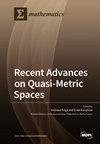哈拉里图的严密性
IF 2.2
3区 数学
Q1 MATHEMATICS
引用次数: 0
摘要
在现实世界的网络设计中,研究人员会评估各种结构参数来评估脆弱性,包括连通性、韧性和顽强性。最近,紧密度度量作为一种潜在的优越脆弱性度量出现了,尽管由于其新颖性,许多相关定理仍不为人所知。哈拉里图以最大连通性著称,是网络设计中一类重要的图模型。之前的研究使用不同的参数评估了三种哈拉里图的脆弱性,但对紧密性度量尚未进行深入探讨。本文旨在计算所有三种哈拉里图的紧密度值。首先,文章将尝试利用现有的阶乘和定理计算哈拉里图中紧密度参数值的下限。然后,我们将通过提出新的公理和定理,尝试找出哈拉里图中这一参数的精确值或上限。对于第一类哈拉里图,紧度是精确确定的,而对于第二和第三类哈拉里图,由于结构的复杂性,我们将提供其上限。本研究提出的lemmas、定理和证明方法可用于计算其他图和网络参数。然而,紧密度参数的新颖性意味着需要进一步的研究来充分描述其特性。本文章由计算机程序翻译,如有差异,请以英文原文为准。
Tightness of Harary Graphs
In the design of real-world networks, researchers evaluate various structural parameters to assess vulnerability, including connectivity, toughness, and tenacity. Recently, the tightness metric has emerged as a potentially superior vulnerability measure, although many related theorems remain unknown due to its novelty. Harary graphs, known for their maximum connectivity, are an important class of graph models for network design. Prior work has evaluated the vulnerability of three types of Harary graphs using different parameters, but the tightness metric has not been thoroughly explored. This article aims to calculate the tightness values for all three types of Harary graphs. First, it will attempt to calculate the lower bound for the value of the tightness parameter in Harary graphs using existing lemmas and theorems. Then, by presenting new lemmas and theorems, we will try to find the exact value or upper bound for this parameter in Harary graphs. For the first type of Harary graph, the tightness is precisely determined, while for the second and third types, upper bounds are provided due to structural complexity. The lemmas, theorems, and proof methods presented in this research may be used to calculate other graph and network parameters. However, the newness of the tightness parameter means that further research is needed to fully characterize its properties.
求助全文
通过发布文献求助,成功后即可免费获取论文全文。
去求助
来源期刊

Mathematics
Mathematics-General Mathematics
CiteScore
4.00
自引率
16.70%
发文量
4032
审稿时长
21.9 days
期刊介绍:
Mathematics (ISSN 2227-7390) is an international, open access journal which provides an advanced forum for studies related to mathematical sciences. It devotes exclusively to the publication of high-quality reviews, regular research papers and short communications in all areas of pure and applied mathematics. Mathematics also publishes timely and thorough survey articles on current trends, new theoretical techniques, novel ideas and new mathematical tools in different branches of mathematics.
 求助内容:
求助内容: 应助结果提醒方式:
应助结果提醒方式:


